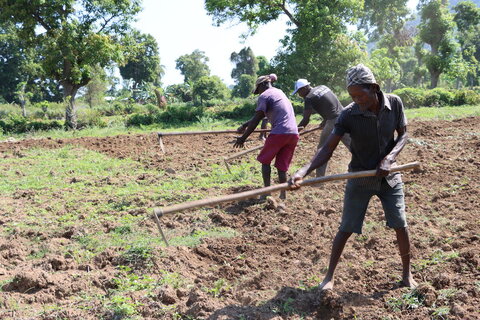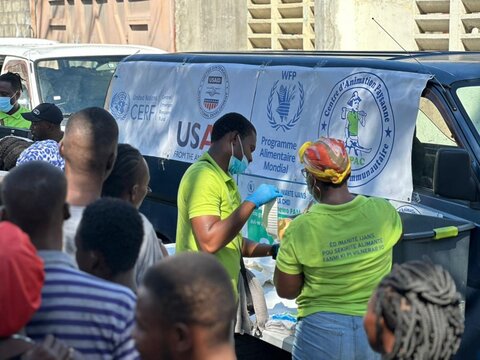The WFP humanitarian who went from tackling Ebola to coronavirus

Chiara Camassa is an administration officer for the World Food Programme in Haiti, where there are currently 72 confirmed cases of coronavirus. Five people have died. Since arriving in the Caribbean country four months ago, Camassa has been the WFP ‘focal point' for COVID-19 issues — largely due to her experience of the Ebola outbreak in West Africa in 2014. Below, she talks about her work.
Tell us about how you came to tackle Ebola?
I landed in WFP's regional response hub of Accra, Ghana, with the responsibility to deploy and track assets throughout three affected countries: Guinea, Liberia and Sierra Leone. What we mean by ‘assets' is mostly generators, prefabs, sanitation structures … and generally, anything that helps us or our partners set up treatment centres, offices and infrastructure in a very short time.

We often think of WFP as the organization delivering food assistance, but it also plays an important role in procuring and moving such assets, and participating in the construction of treatment centres.
Lessons for dealing with COVID-19 from WFP's response to Ebola
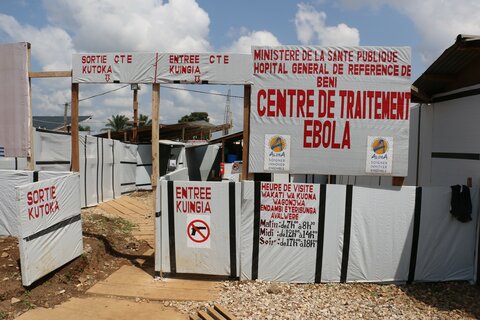
I was always travelling between the three countries, sometimes to remote villages by helicopter, to keep track of assets and understand how they were being deployed and used.
What were your impressions of WFP's response?
Going into these remote villages, often not accessible by road, or where trucks would get stuck in the mud, it was rewarding to see that our food assistance was reaching the families that needed it.

The assistance meant that people would not have to take long journeys to buy food to put on the table. It allowed them to stay at home and avoid contact with others, which helped to prevent the spread of the virus.
What lessons can be learned from the Ebola response?
In both contexts, food assistance can help facilitate sheltering at home. Here in Haiti, we've delivered a month's worth of food rations to the people in Ennery in the town of Artibonite, just as it was about to be placed under quarantine by the Government.
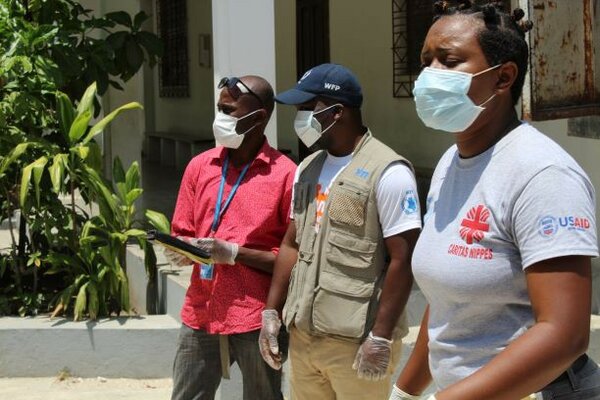
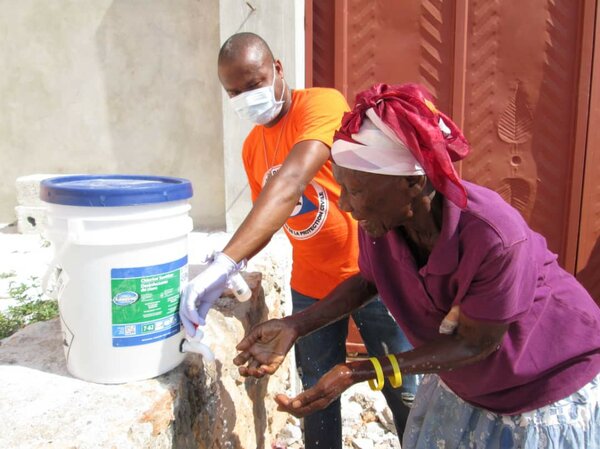
Communication is also very important. We often come into communities as strangers, and it's important to listen, to build trust, and to give very reliable information on what the disease is, and what protocols should be followed. Many of these communities do not have access to the channels of information that we traditionally think of — TV, internet … and so we would communicate through radio, meet with community leaders, or run practical demonstrations.
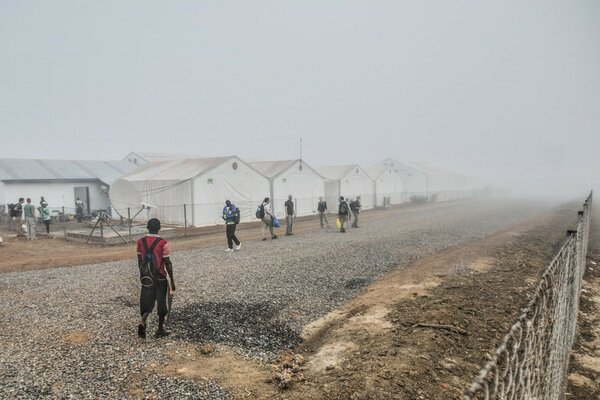
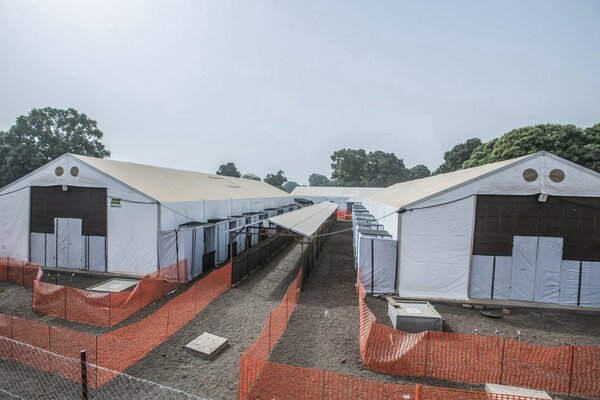
When I say communication, I don't just mean communication with local communities. Good communication and training of our staff are absolutely essential to protect them, and the people we serve. Wearing a mask, washing your hands — these things can seem simple but there are strict protocols to follow.
How do the two responses differ?
One big difference is that Ebola was a regional crisis and COVID-19 is a global outbreak. In the first case, we could easily deploy staff — and we did. More than 150 people arrived in the first two months to help with the response.

In the case of COVID-19, movement restrictions mean that we mostly have to work with available resources and staff in-country, and that's a very new challenge for us. It is essential to train staff on preventive actions, protect them and the communities they come in contact with, and to pay attention to their wellbeing — they can spend a very long time without relatives in a country that is not their own.
The effectiveness of our response ultimately depends on our staff.

